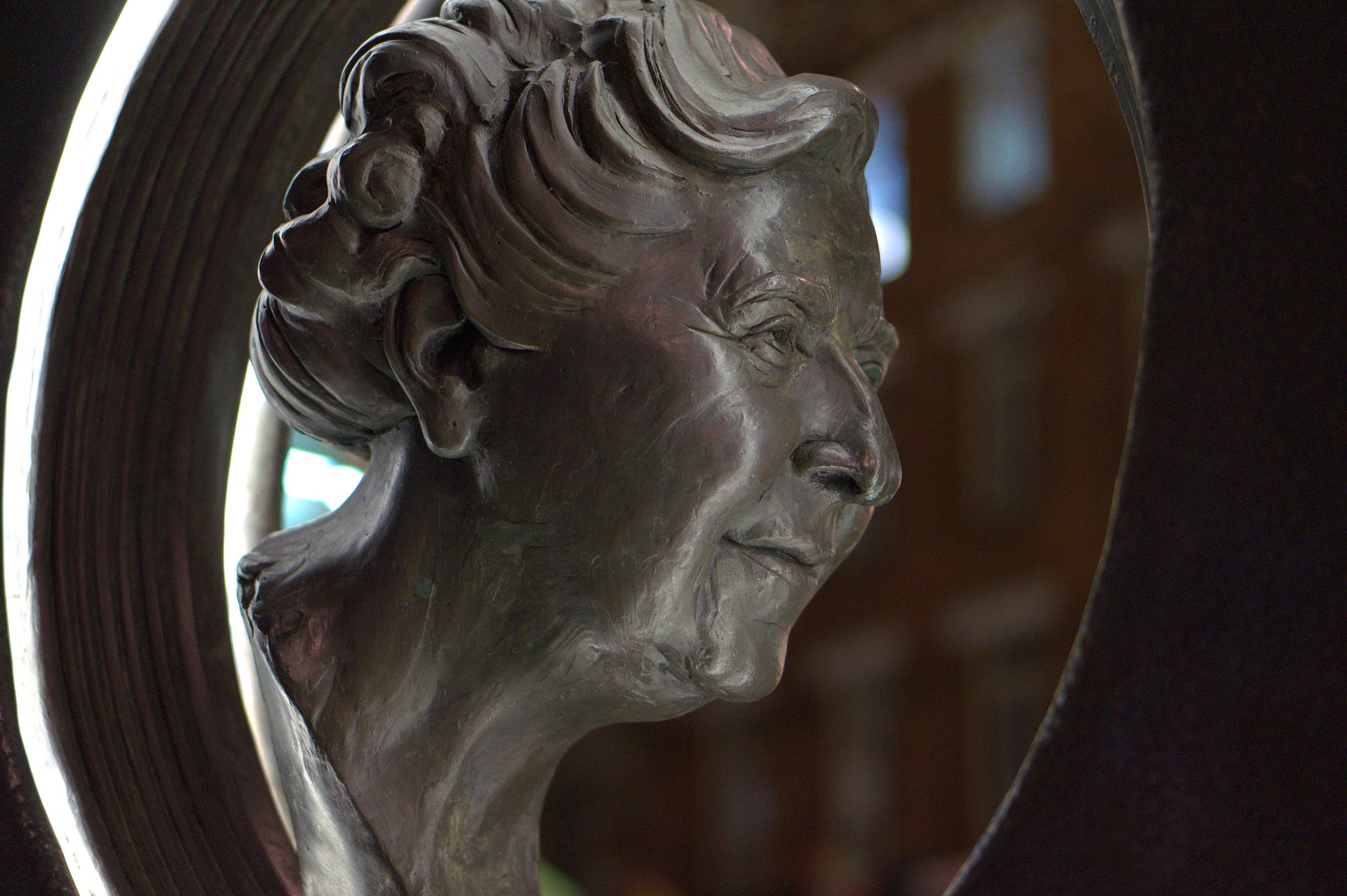"Porn literacy" aims to make sure that schools are exposing kids to the broadest range of sexualized matter.
The Thought Police Come for Miss Marple

Our woke commissars continue their march.
I happen to belong to that small group of Agatha Christie devotees who believe that the great English mystery writer not only told a good yarn but conveyed genuine and enduring wisdom about human nature and the struggle between good and evil in the human soul. The conservative political philosopher Harvey C. Mansfield, in recommending some Agatha Christie books as Christmas purchases way back in the 1970s (along with Aleksandr Solzhenitsyn and Leo Strauss no less!), wrote that she was deeper than the so-called depth psychologists such as Freud and Jung, because she knew human beings better. That was what allowed her to fool the reader time and time again. The truth of that recommendation seems self-evident to me.
Christie’s most famous detective, the Belgian Hercule Poirot, can grate on one’s nerves because of his self-parodic fastidiousness and his rationalist confidence in his “little grey cells.” Still, he is a most formidable agent of justice, moral and civic.
But there is nothing like the elderly spinster and amateur detective Miss Jane Marple, Agatha Christie’s most admirable invention. Appearing distracted and preoccupied by gossip in her small English village of St. Mary Mead, Miss Marple in fact displayed a profound grasp of human nature. An old-fashioned Anglican, she knew right from wrong and had an eye for wickedness in its most subterranean forms. The old Scotland Yard hand Sir Henry Clithering thought her a genius of detection precisely because she knew human nature, the high and the low, so very well. Where others saw “the typical old maid of fiction,” Clithering detected in her a force of nature and a powerful instrument of justice. As the vicar’s wife says about her in the first of the Marple books, The Moving Finger, she “knows a great deal about wickedness!” Her sophisticated nephew, the writer Raymond West, was good if condescending toward his aunt. He saw in little St. Mary Mead only a “stagnant pool.” His wiser and more discerning aunt corrected him: “That is really not a very good simile, dear Raymond. Nothing, I believe, is so full of life under the microscope as a drop of water from a stagnant pool.”
As Anne Hart points out in her delightful book, Agatha Christie’s Miss Marple: The Life and Times of Miss Jane Marple, Miss Marple ought to know. Her “stagnant” village saw no fewer than 16 murders in a period of some 40 years—“five by poisoning, two by shooting, two by drowning, two by strangling,” and others by unidentified or unspecified means. In addition, there was no shortage of robberies, embezzlements, and attempts at blackmail. Miss Marple knew quotidian wickedness when it reared its ugly head.
Now the thought police have come for Agatha Christie, Poirot, and Miss Marple. A slew of articles in the New York Post, the Guardian, and the Independent have pointed out that some of the innumerable Poirot books and stories, and all 12 that center around Miss Marple, have been rewritten under the guidance of HarperCollins’s “sensitivity readers,” the Orwellian euphemism for censorious ideological hacks. Anything that might offend contemporary readers imbued with identity politics is apparently fair game. References to black people, Jews, and Gypsies must go even if such people surely exist. Descriptive terms like “white teeth,” a body like “black marble,” and a reference to an “Indian temper” must all be excised, too. A cranky character in Death on the Nile lamenting children as pests (“I really don’t like children”) finds his words sanitized. The complexity of real life must be sacrificed to satisfy woke sensibilities. How dare Christie refer to characters with “such lovely white teeth,” especially if they are “natives” (another banned word).
But this preoccupation with the superficial, the petty, and sundry invented ideological offenses creates a powerful obstacle both to enjoying and understanding Agatha Christie’s remarkable detective stories and her lucid wisdom about human beings—good, bad, and in-between. The fact that the Christie estate goes along with this mutilation of Agatha Christie’s art and authorial intention illustrates the sheer stupidity (and cowardice) at the heart of identity politics and our ever more censorious culture of repudiation. Idiots and ideologues destroy art, undermine the pleasure that the best literature provides, and risk making the rest of us complicit in their tyranny. Who would have thought a mere ten or 20 years ago that the Anglo-American world would become subject to a new group of soul-crushing culture commissars, as they were described in the communist East before 1989?
In response to all this I say: Let Miss Marple be Miss Marple. As Anne Hart points out, we see Miss Marple in all her glory in the final story (chronologically that is) in the series of mystery novels. She had collaborated with her new ally Jason Rafiel in the preceding novel, A Caribbean Mystery, a cantankerous old man confined to a wheelchair, to solve a series of truly demonic murders. They took a liking to each other in the process. In the worthy sequel to that book, Nemesis, a deceased Jason Rafiel charges Miss Marple with the task of solving some old murders and vindicating the wrongly charged along the way. In her efforts to right wrongs and bring evildoers to justice, she encounters murder, suicide, and an attempt on her own life. But she emerges victorious, a true servant of righteousness…and 20,000 pounds richer.
Why did Mr. Rafiel choose his friend Miss Marple for this potentially treacherous mission? Because, as he said in his posthumous note to her, she had “a natural flair for justice, and that has led to your having a natural flair for crime.” Everything else is a distraction. The sensitivity trainers are insensitive to everything that is great and good about Agatha Christie and her beloved Jane Marple. We should have nothing but contempt for them.
The American Mind presents a range of perspectives. Views are writers’ own and do not necessarily represent those of The Claremont Institute.
The American Mind is a publication of the Claremont Institute, a non-profit 501(c)(3) organization, dedicated to restoring the principles of the American Founding to their rightful, preeminent authority in our national life. Interested in supporting our work? Gifts to the Claremont Institute are tax-deductible.
NatCon London raises unavoidable questions.
The Right should reclaim the populist ground that enabled its biggest victories.
To leave the EU was to return to politics.
Critical race theory was never designed to reveal truth—it was designed to achieve power.
Alabama’s great public universities are folding to the diversity agenda.






